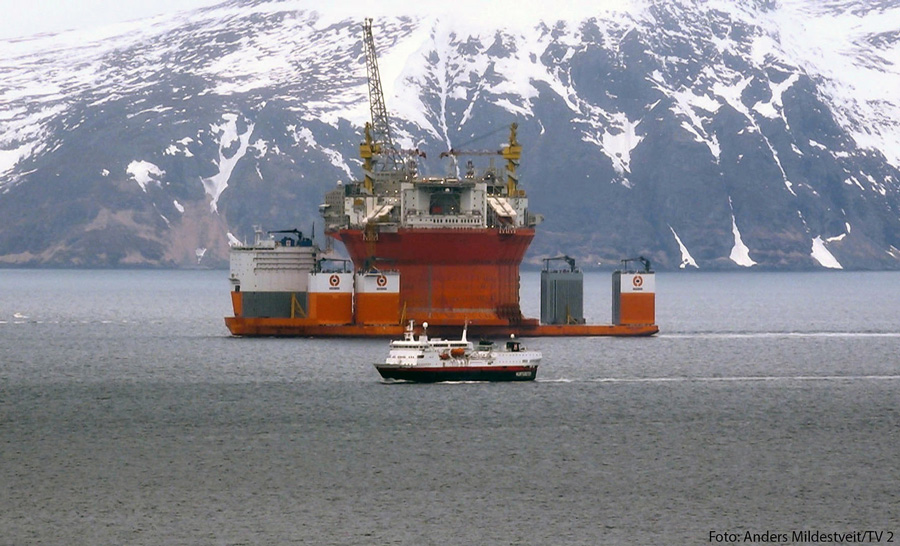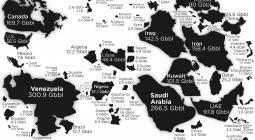End of an era: Norway’s sovereign wealth fund divests from oil and gas.
With Norway’s Government Pension Fund Global’s cessation of investment into oil and gas exploration and production came some questions for the sector and those countries reliant on a profitable industry. Andrew Tunnicliffe speaks with Tom Sanzillo and Erling Kvadsheim about the industry’s future.
It’s been the cornerstone of Norway’s fiscal budget and supported the country’s healthy economic growth for decades, but today oil and gas exploration, and the role it has to play in future economic stability, is at a crossroads.
In 2014 the country suffered what the Governor of the country’s central bank, Norges Bank, called “the negative oil price shock.” Speaking at Norway’s Capital Market day in 2018, Øystein Olsen said the exchange rate had acted as a “shock absorber” following the collapse in oil prices five years ago. Although oil and gas had been the mainstay of the economy, prudent fiscal policy supported by good economic management had sustained the country though a difficult time. However, the alarm had been sounded and the country needed to look to the future.
Olsen went on to say growth had continued to strengthen since and a number of large development projects will contribute to a rebound in oil investment in the coming years, but it was clear Norway’s future planning had begun.
Norwegian pension fund pulls plug on oil and gas investment
In March 2019 the Government Pension Fund Global (GPFG) said it was moving away from investing in oil and gas exploration, signalling the end to a historical enthusiasm for the sector. The fund is the world’s largest, valued at $1tn (£770bn), so the move away from exploration sent a worrying message to the industry.
“That part of the sector is a lagging part, an ailing unit in this overall sick industry,” says Tom Sanzillo, director of finance at the Institute for Energy Economics and Financial Analysis. He adds, however, the fund’s decision is symptomatic not just of the situation it finds itself in, but it also speaks of the new reality for the country more widely and its economic future.
“They have several big problems, not just a problem for pension funds but of course the Norwegian economy needing to find businesses, markets, and sectors that are going to replace oil and gas over time.”
"In March 2019 the Government Pension Fund Global (GPFG) said it was moving away from investing in oil and gas exploration, signalling the end to a historical enthusiasm for the sector."
Sanzillo believes Norway is facing the reality that in the future, oil and gas will not provide the returns they once did.
“Norway is at a crossroads and they are probably one of the most important countries in the world managing this because they are trying to do it, more or less, transparently and publicly,” he says, adding that the likes of Russia, China and Gulf oil producing states are facing a similar dilemma. “They just don’t talk about it because it undermines the legitimacy of the government there.”
However, he believes this situation has been a long time in the making. Even if oil companies continue to produce greater volumes, the fact is profitability in the sector is weakening he says. What does this mean for the future of exploration?
The future for oil and gas
Erling Kvadsheim, director of international affairs at the Norwegian Oil & Gas Association says: “We do not predict that this decision has any effect on the petroleum exploration policies of the current Government, nor the interest from the industry in exploring in Norway.”
Erling Kvadsheim, director of international affairs at the Norwegian Oil & Gas Association says: “We do not predict that this decision has any effect on the petroleum exploration policies of the current government, nor the interest from the industry in exploring in Norway.”
The trade body represents numerous oil companies and those within the sector’s supply chain.
Sanzillo argues, however, the oil majors – Exxon Mobil, Total, BP, Shell, and so on – have been underperforming for years and the reality of it is starting to bite. “They have lagged the market for decades and everybody knows it… The fund is acknowledging all this and making a call and adjustment.”
It’s a view that is in stark contrast to that of Kvadsheim: “The reason given by the government is to reduce the total oil price risk exposure in the Norwegian economy. This has some good economic sense for a country like Norway, with its petroleum income dependence. But one cannot ignore that this is an actual change in policy, which sends signals or indications to the market.”
"Falling oil prices – over an extended period of time – and a rise in the demand for renewable sources will shape the industry of tomorrow."
Although Sanzillo recognises the move by the GPFG is largely based on investments in exploration and production, he says the entire sector needs to start thinking about its future. Falling oil prices – over an extended period of time – and a rise in the demand for renewable sources will shape the industry of tomorrow.
“We aren’t about to end our use of fossil fuels for the likes of aeroplanes and ships, substantial pieces. So there is some market there but what you’re seeing is an overall smaller market, with smaller profits and higher costs, and so you’ll have a very different fossil fuel sector in the future.”

Global oil and gas majors need to diversify
Sanzillo urges oil and gas companies to begin thinking about their future investment in research and development and where that finance and expertise should go, making use of what he said were their “very different skills”.
He believes renewables are where the future of today’s oil and gas producers lies, explaining: “They are more knowledgeable about them than anyone else in the world. They should be devoting more to that and trying to bring the product into commercial operation… some will fail, but they should try.”
It’s imperative for the industry’s future success, he argues, as although oil and gas companies will tell you things will turn around next year, even next quarter, it won’t. “Although there’s a market there for some decades, it’s an industry in decline. It needs a strategy for managing that decline.”
"Sanzillo urges oil and gas companies to begin thinking about their future investment in research and development and where that finance and expertise should go."
Part of that strategy is partnering with governments to prepare the economy for tomorrow.
“Norway is at least beginning to talk about it,” says Sanzillo. “In the US, when defence plants close, we mobilise the entire economy in order to make sure there is a smooth transition for workers and the communities where those closures are taking place – changes in the fossil fuel sector will be even bigger.”
Despite the need for a refocus Sanzillo speak of, he’s positive about the industry’s ability to change: “Amongst other things, large oil and gas companies are like universities. They are research universities that have great capacity to do great things, they already have. They have the capability and have been a major driver of the world for decades. You hope they can do that again, just without destroying the planet.”
Norwegian decision, global problem
While the future for the oil and gas companies looks unclear right now, the reality is, whether providing us with fossil fuels or something else to power our lives, they will continue to provide something.
However, an answer to another question my conversation with the 30-year veteran of public and private finance raised is, right now, less certain. How will the governments of the world today, relying on their oil and gas reserves to balance budgets and maintain control of their people, manage that decline?
“That has implications for geopolitics I can’t even fathom right now. It’s a recipe for bankruptcy for Russia, Qatar, Saudi Arabia, Iran and so on. I just don’t know what that will mean,” Sanzillo concludes.
It is a question for another day, but that day is coming.
31 May 2019



